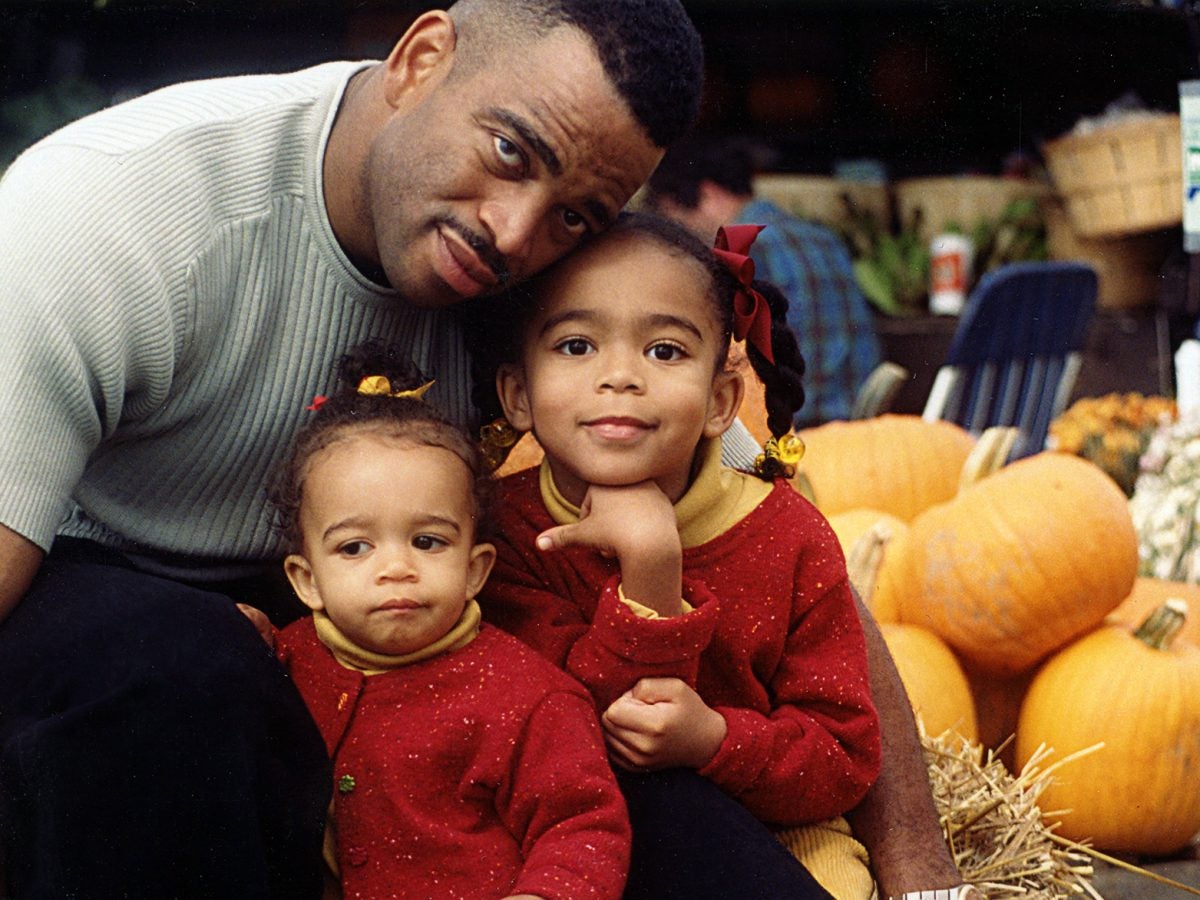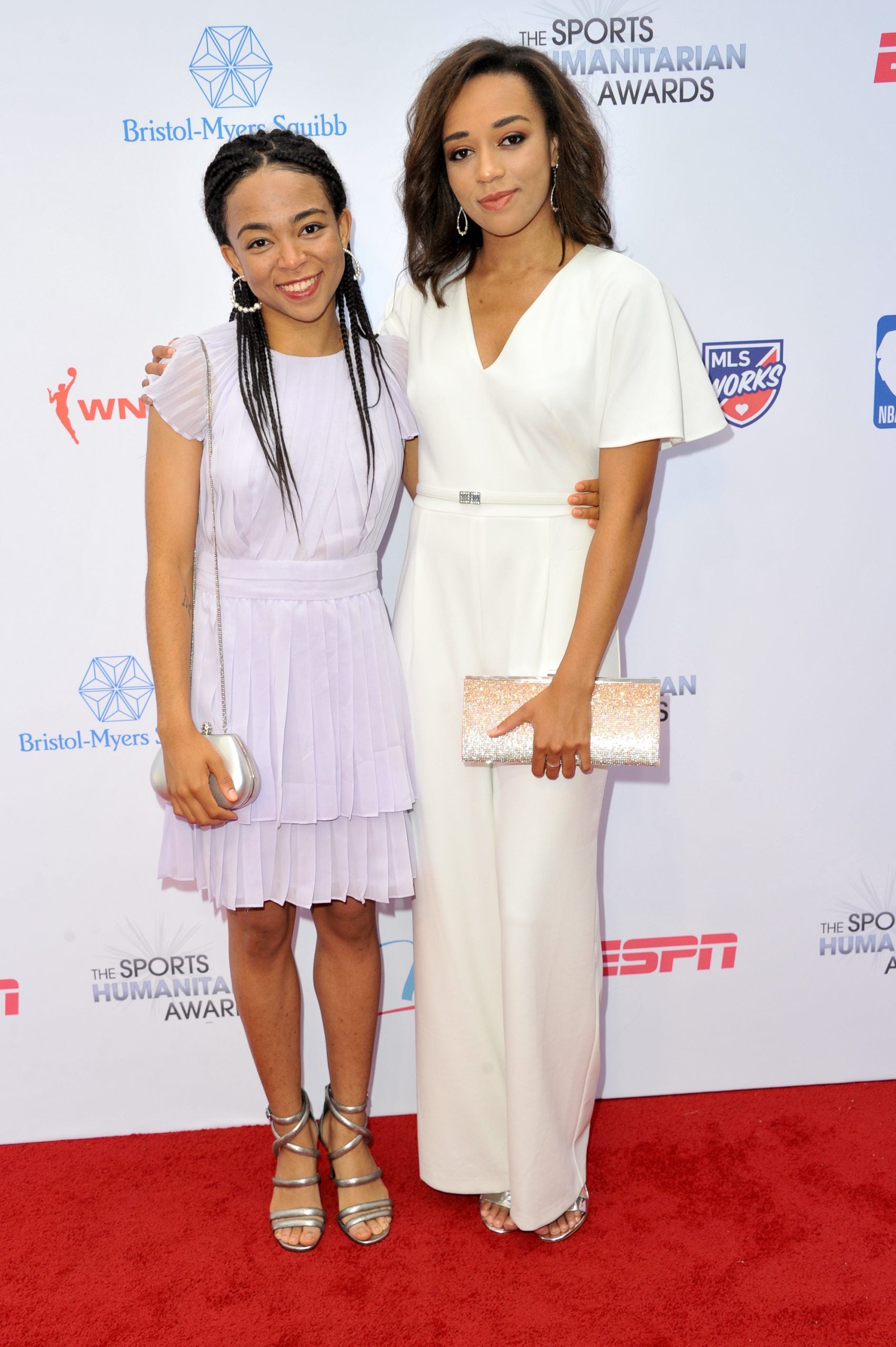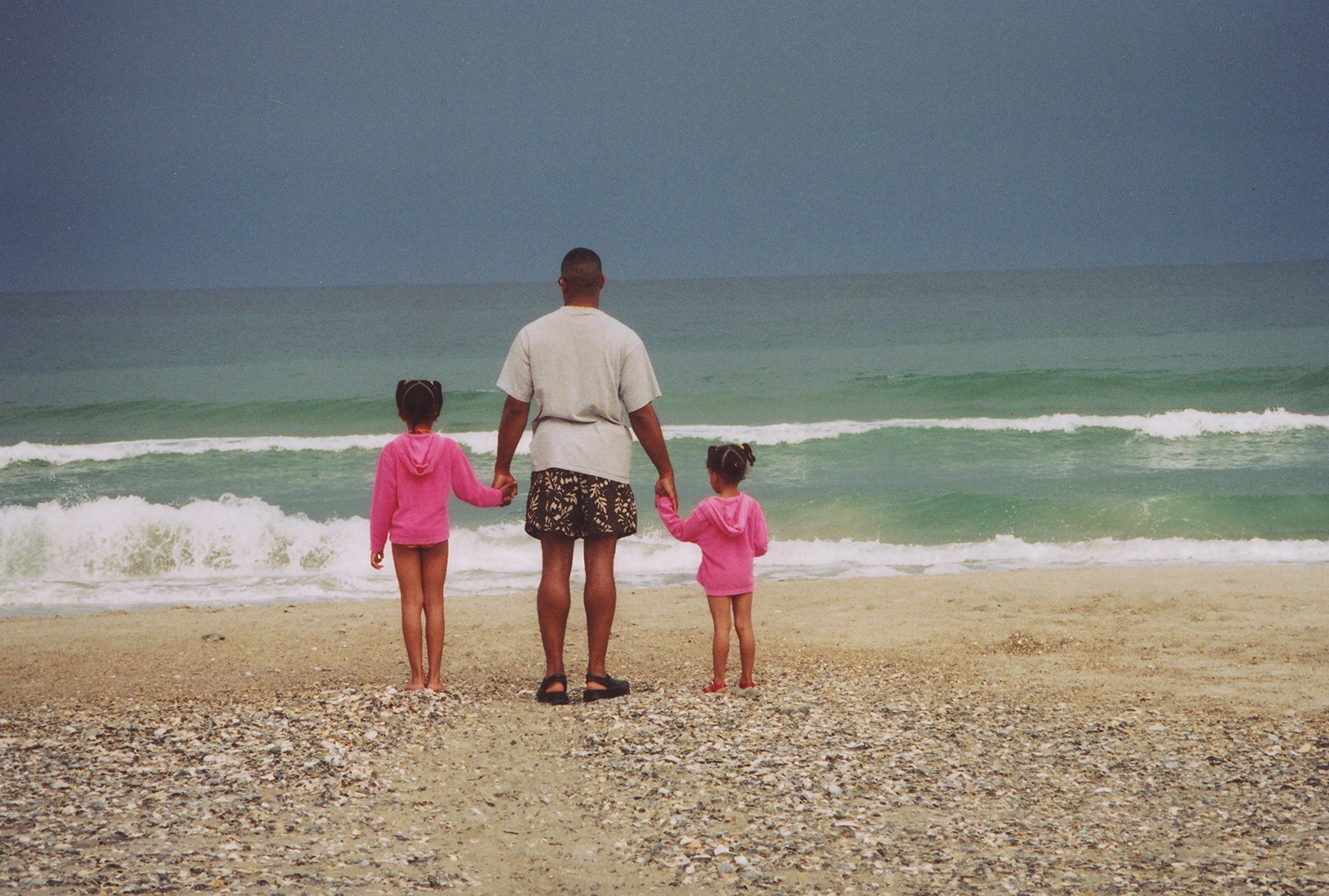
Long before former ESPN sportscaster Stuart Scott was first diagnosed with cancer in 2007, his daughters Sydni and Taelor Scott had been sharing in his mission to help eliminate inequities in cancer care.
“We were going to V Foundation events starting as early as I could remember,” Sydni, 24, tells ESSENCE. “There was something different about these events and the energy in the room of people who were coming together united in this really specific cause. It was almost a familial feeling so by the time he was ultimately diagnosed with cancer, we had been enmeshed into a support system. The fact that this was something he was so committed to before he even received his own diagnosis is something that has absolutely changed the way that my sister and I approach our work with the V Foundation. It really drives it.”
Since their father’s death from appendiceal cancer on Jan. 4, 2015, Sydni and Taelor have continued spreading the word about the V Foundation’s efforts to eradicate racial and ethnic disparities in cancer outcomes. That same year, the organization, in partnership with ESPN, established the Stuart Scott Memorial Cancer Research Fund with the specific intent of funding researchers who study diseases that predominantly affect minorities and minority researchers who are working within their communities. Over the past eight years, 54 researchers have been funded through the Stuart Scott Memorial Cancer Research Fund. Collectively, they’ve generated more than 1,200 patents that have been connected to over 125 clinical trials and received 299 grants, which have amounted to $2.1 billion in funding for cancer research.
“Those numbers aren’t nothing, and that impact becomes concrete when you also have conversations with these researchers,” says Taelor, 28. “They can tell you in real time that sitting in the office and listening to a diagnosis is really frightening, but listening to people whose entire job it is to make breakthroughs and talk about why people are having better outcomes today than they did 10 years ago is really encouraging. It’s a very inspiring community that we are so grateful to be a part of.”

On December 4, the fund will host its third annual fundraising event, BOO-YAH: A Celebration for Stuart Scott, coinciding with the V Foundation’s 30th anniversary. Each year, guests are served Scott’s favorite dessert, Baileys and ice cream, and this year Sydni and Taelor created a special playlist for the event which features their dad’s favorite songs. Selections show the late sports commentator’s love of every genre, from rap and hip-hop to musical theater.
“It’s a grand, beautiful event,” says Sydni. “Everyone is there in celebration and there’s a hope that has been imbued in this fight for people who have lost people, for people who are still fighting for their loved ones and supporting their loved ones who are still fighting cancer. These elements of the event are so dear because they’re so simple. It’s the simplicity that’s humanizing. We’re getting to remember the moments that we shared with our dad.”
Still, the weight of carrying on their father’s legacy has been difficult over the years. “This is something Taelor and I’ve been doing a lot of reflection on over the past few months,” adds Sydni, a 2022 Rhodes Scholar who’s currently studying for her master’s at the University of Oxford. “We’re coming up on the 10th anniversary of my dad receiving the Jimmy V Award and having to write these statements and go up and speak, I was so worried at the time that I wasn’t big enough to fill those shoes. I wasn’t going to be able to have the strength, to have the clarity to carry on this legacy. And one of the most special things has been being able to connect with people on an individual level. Every time my sister and I have gone to ESPN, the ESPYs, to V Foundation events, fundraisers, there’s always been someone who comes up to us afterwards and shares their personal story. And in those moments, you question, ‘Did I say the right thing? Did I come off in the right way? Did we raise enough money?’ And to connect with people one on one like that, it comes down to the idea of, you know, maybe we didn’t, but we fostered that kind of human connection. And that kind of human connection is what makes the grieving process, is what makes the fight, is what makes all of that bearable and witnessable.”
“And I think that what overpowers the grief and the fear is the gratitude,” adds Taelor, a filmmaker who works for Issa Rae’s audio platform Raedio. “The V Foundation is made up of so many families and the fact that they have connected with us and really included us on several initiatives, the fact that this BOOYAH event is going to close out the V Foundation’s 30th anniversary campaign, being brought into this community makes me feel so loved. I’m very excited and so grateful for the opportunity to share that love in a practical way that is going to change lives.”

Cancer has hit close to home once again for the Scott sisters whose maternal grandfather is now undergoing treatment. Witnessing his experience as a patient, they say, is a manifestation of the work their father began with the V Foundation decades prior.
“Our grandfather has always been a very well-manicured, very stylish man, and he hates it when his facial hair grows out too long. And I remember coming in to visit him one day and the nurse had taken a picture that showed what he had looked like and they had actually taken the time to shave his face. To see this elderly Black man treated with compassion and dignity in this very scary medical context whose told us of the times when he didn’t receive that treatment and that respect and that consideration as a human being with fear and vulnerability has been the most profound thing,” says Sydni.
“When I go in that room, I see my father’s experience in that,” she adds. “I see my experience and fearing for him in my own mother, who is now facing her father having cancer. The way that it’s cyclical, the way that it’s parallel, has made it all the more clear how important the strength that comes from places like the V Foundation, from families like ours, from nurses who are putting in their time to make sure that he’s safe, that he’s healthy, that he’s comfortable, and that he’s happy, and that he’s dignified is.”
“The things that I have seen my family members go through have shown me grace and enormous bravery,” adds Taelor. “My father was so adamant that despite the costs and despite the fact that he was unsure about what it meant for his future, he always wanted to participate in clinical trials because he knew that that work was not only going to affect him. That even if it didn’t save him, it would be another data point. It would be more research. It would be something to leave for the future. And I have been so comforted even in the darkest moments to see the humility and bravery that so many people have. The most centering thing is the way that people’s humanity has lifted me and lifted the people I loved.”